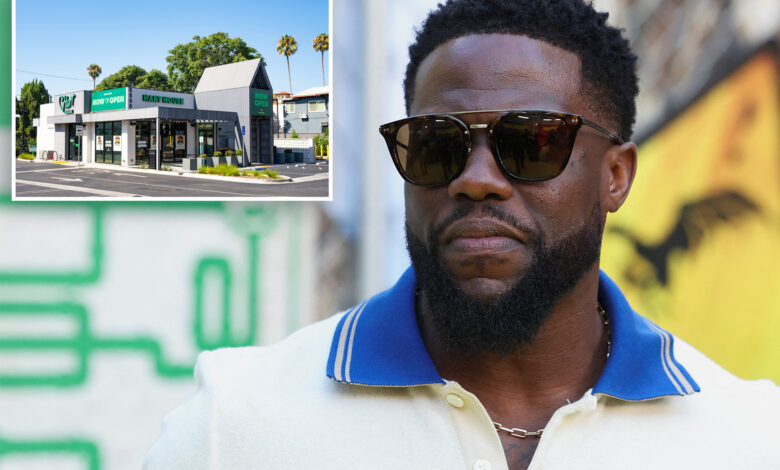Kevin Hart’s LA plant-based fast food chain suddently closes all locations just two years after opening

From green to gone!
Comedian and actor Kevin Hart’s plant-based fast-food chain, Hart House, has abruptly closed all its locations just two years after launching.
The “Jumanji” star’s four Los Angeles area locations were officially closed for good — and without warning — on Tuesday, Hart House’s CEO Andy Hooper confirmed to Eater.
“The response to the product has been incredible, and we thank our committed team, our customers, and our community partners for helping make the change we all craved, and for their unwavering support of Hart House,” Hooper told the outlet.
The CEO did not offer a reason for the closures.
On Wednesday, Hart House shared the closure of all its restaurants on Instagram.
“A Hartfelt goodbye for now as we start a new chapter,” the post read.
“Thank you. To our team, guests, and community, who helped make the change we all craved.”
The “Ride Along” actor began working with Hooper to develop a plant-based fast-food chain in 2020, Eater reported.
Hart had announced his plans to launch Hart House in 2022, saying that the idea came after he switched to a primarily plant-based diet.
Hart House served vegan burgers, “chicken” sandwiches and nuggets, fries, tots, salads, and milkshakes, with the goal to “create a good experience that combines the joy of coming together over food, with the power of purpose,” Hart is quoted on the company’s website.
“Our amazing chefs and team members have crafted a 100% plant-based menu that delivers ‘can’t-believe-it’ flavor in every bite. I know you’re going to love it.”
According to the plant-based fast food joint’s mission statement, Hart House was “committed to the future of food and our overall well-being.”
“We’re on a mission that’s simple: to make the food you know and love – better for you, your wallet, and the planet.”
Hart House’s closing follows another high-profile restaurant closure in Los Angeles, the popular burger chain Shake Shack, according to Eater.
The East Coast burger chain announced in August that it would close five Southern California locations by the end of September.
The rapid closures of fast food joints come five months after California’s new $20 minimum wage increase was enacted.
In that short period, fast-food restaurants in California have slashed nearly 10,000 jobs as struggling franchises cut labor costs and raised prices to survive.
Several major chains – including McDonald’s, Burger King, and even low-cost favorite In-N-Out Burger – jacked up prices to offset the higher wages.
Just last month, the California Fast Food Workers Union, a Service Employees International Union (SEIU) branch, released a new list of demands at the first meeting of the state’s Fast Food Council.
One of their demands was another minimum wage hike.
The union is asking that workers’ wages be raised to $20.70 per hour by Jan. 1, 2025, “to keep up with the rising cost of living.”




